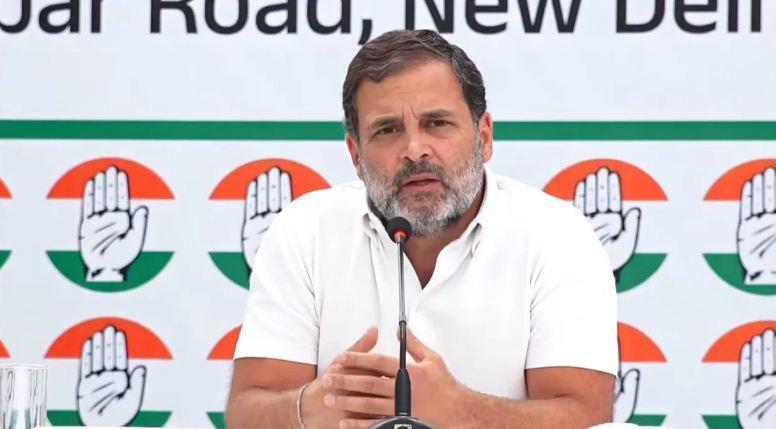Allahabad High Court to Rahul Gandhi: Freedom of speech does not include freedom to make defamatory statements against Army

Jun 05, 2025
LUCKNOW: Freedom of speech is subject to reasonable restrictions and it does not include the freedom to make defamatory statements against any person or the Indian Army, the Allahabad High Court has said, rejecting Congress leader Rahul Gandhi's plea to quash summons against him for alleged derogatory remarks during his Bharat Jodo Yatra in 2022.
Justice Subhash Vidyathi of the Lucknow bench, in his May 29 verdict, observed that there was a prima facie case against Gandhi for making defamatory statements against the Indian Army and upheld the lower court order issued in February summoning the Leader of Opposition in Lok Sabha to face trial.
"No doubt, Article 19(1)(a) of the Constitution of India guarantees freedom of speech and expression, this freedom is subject to reasonable restrictions and it does not include the freedom to make statements which are defamatory to any person or defamatory to the Indian Army," the judge said in the detailed order released later.
The case stems from a complaint filed by Udai Shanker Srivastava, a retired Director from the Border Roads Organisation (a position equivalent to a Colonel in the Indian Army).
Srivastava alleged that on December 16, 2022, during his ‘Bharat Jodo Yatra' in Lucknow, Gandhi made disparaging comments about a face-off between the Indian and Chinese armies in Arunachal Pradesh on December 9, 2022.
Srivastava contended that Gandhi's statement was "false and baseless" and made with "evil intention of demoralising the Indian Army and to damage the faith of the Indian population in the Indian Army." He highlighted that the official statement from the Indian Army on December 12, 2022, confirmed that "PLA troops contacted the LAC in Tawang Sector which was contested by our troops in a firm and resolute manner. This faceoff led to minor injuries to a few personnel from both sides." The complainant said that Gandhi's "baseless and derogatory statement" deeply hurt him and other nationalists.
The Additional Chief Judicial Magistrate, Court No. 27, Lucknow, had on February 11, 2025, summoned Gandhi to face trial for the offence under Section 500 of the Penal Code (defamation).
The lower court observed that prima facie, Gandhi's statement appeared to demoralise the Indian Army and its personnel, and was not made in the performance of his official duties.
In the High Court, Gandhi's counsel Pranshu Agarwal argued that the complaint was politically motivated and lacked merit.
He contended that the complainant was not an "aggrieved person" under Section 199 of the Criminal Procedure Code, as the alleged defamation was against the Indian Army as an institution, not Srivastava directly.
The High Court, however, clarified that the complainant as an "aggrieved person" is capable of filing the complaint under Section 199 CrPC.
Justice Vidyarthi also noted that the trial court's decision to summon Gandhi was based on a "judicious application of mind" after considering the complaint and witness statements, and was not mechanical, while dismissing Gandhi's plea challenging the summons.